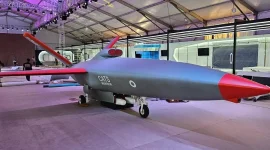
Wing Commander Abhinav Sharma, dismissed from the Indian Air Force following the accidental firing of a Brahmos missile into Pakistan in March 2022, claims "blatant gaps and ambiguities" in missile handling procedures led to the incident. Sharma asserts that he was not consulted before the launch and that the operations officer proceeded without his input.
The incident, which caused significant diplomatic tension between India and Pakistan, was attributed to a technical malfunction by the IAF. However, Sharma, in a rejoinder filed with the Delhi High Court, challenges this explanation. He argues that the standard operating procedures (SOPs) lacked clarity on who was responsible for disconnecting the missile's combat connectors after the pre-launch checks.
Sharma's filing highlights that the decision to connect or disconnect the combat connectors rested solely with the operations officer, with no specific duty assigned to the engineering officer. He claims that on the day of the incident, not only was the combat crew not correctly positioned within the Mobile Autonomous Launcher (MAL) due to the presence of an additional officer, Air Commodore JT Kurien, but he was also not informed about the altered mission plan, which was communicated directly by the Commanding Officer to the operations officer.
Further, Sharma contends that Squadron Leader Pranjal Singh, also dismissed following the incident, was designated as the MAL commander despite being seven years his junior. He emphasizes that the roles within the combat team, rather than the team itself, should have been the focus of the inquiry.
Criticizing the IAF's selection process, Sharma points out that while engineering officers for sophisticated weapon systems are chosen based on rigorous criteria, operations officers are appointed to crucial decision-making positions with limited operator training. He also alleges that the IAF replaced the presiding officer of the Court of Inquiry mid-investigation with an Air Vice Marshal who headed the directorate responsible for issuing the SOPs, compromising the impartiality of the investigation.
The IAF, in its previous response to the court, had dismissed Sharma's allegations as "conjectures, surmises, bald, baseless and without any substantiating evidence," maintaining that Air Commodore Kurien was not responsible for the unit's operations.
This incident, which resulted in a ₹25 crore loss to the government exchequer and damaged the IAF's reputation, continues to raise questions about the safety protocols and accountability within the organization. The Delhi High Court's decision on Sharma's petition will likely have significant implications for the IAF's missile handling procedures and its approach to investigating such incidents in the future.


